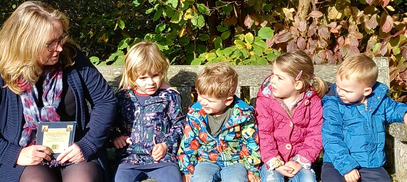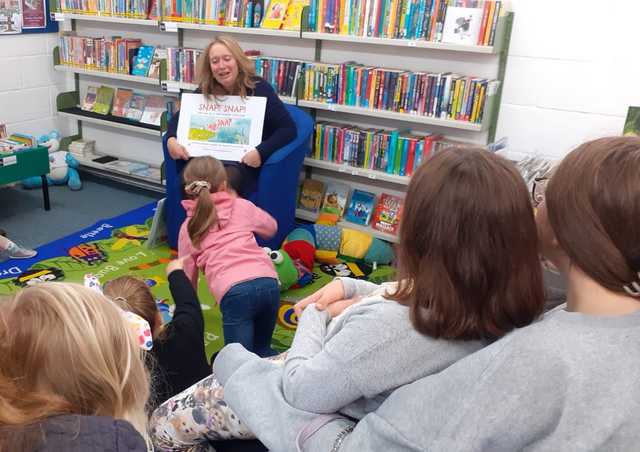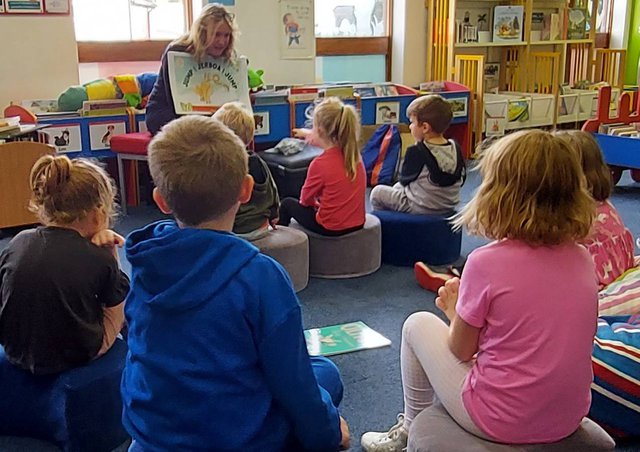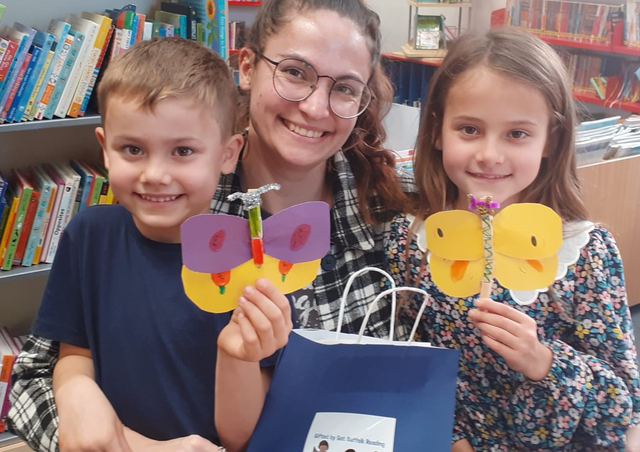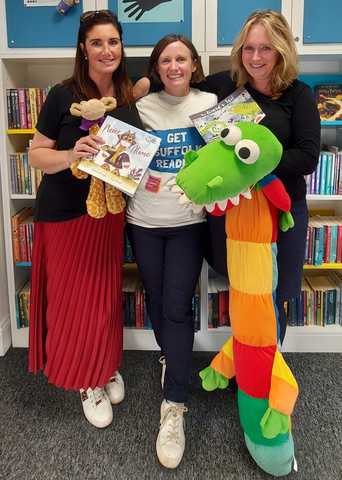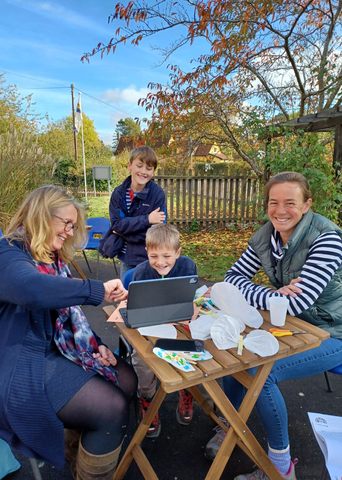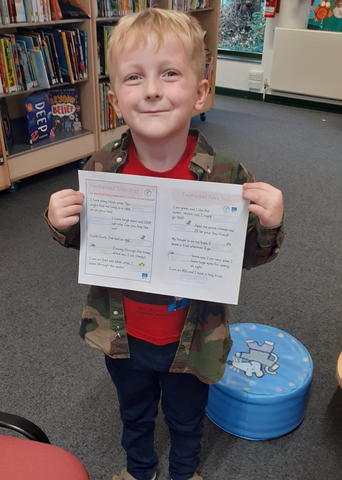Featherbed Tales, a digital service that lets people record themselves reading books and greetings cards, has been working with Get Suffolk Reading to create new content and inspire a love of learning and reading in Suffolk.
We sat down with founder Caroline England to talk about the benefits of the collaboration between Featherbed Tales and the National Literacy Trust.
How did you get involved with Get Suffolk Reading?
We’ve been involved with Suffolk Libraries, a partner of Get Suffolk Reading, for about 18 months now. Initially when they approached us, they said they wanted to offer all of our books and services to any resident who becomes a library member, and they were the first library group to come on board with us.
And it was through ongoing conversations with them that I was put in touch with Get Suffolk Reading and we began working together.
I run monthly demo sessions that are all about demonstrating how to use Featherbed Tales: how to record a story, how to share it, how easy that process is. In addition to that, we talk about how storybooks are used in different settings.
These sessions are open to everybody – we’ve had people from Suffolk County Council’s children and health teams, nurses, teachers, speech and language therapists and child play specialists from hospitals – and they’re really good spaces to share. I’ve talked about the National Literacy Trust in those sessions and how Get Suffolk Reading is looking to share books and resources with people who are developing literacy skills.
After that we got into conversation with Suzanne, Get Suffolk Reading’s Haverhill Project Manager, about the type of books we produce. When we started, we were really thinking about connecting separated families, parents and grandparents who want to read stories for children who aren’t in their lives daily. But what we’ve seen over the last few years is that there are as many children recording as older people. It’s a powerful tool in terms of helping to develop reading skills and vocabulary and language.
How does Featherbed Tales promote and improve these literacy skills?
Well, taking one example of a little girl from Suffolk, we spoke to her mother and the recording process has really helped. It’s really lovely, because she’s reading a story and when she comes to words that are spelled the same but pronounced differently – read and read is the example – she tries both and her mother says, ‘you were right the first time’. And when she listens to that back, it helps to reinforce the learning. Being able to record and listen back does enhance the way that children speak aloud and is a really nice way of using the books.
We really value the statistics that the National Literacy Trust produces, and the research done that identifies the issues being faced in improving literacy. The proportion of children that don’t like reading, for example. We’ve had feedback from parents of a child who didn’t like reading and the ability to personalise the story on our platform really made a difference to him. In the recording from his auntie, she addressed him personally and started the story with ‘hiya!’ and when he listened, he engaged with that and said ‘hiya!’ back. Now he’s at a stage where he asks for that storybook every night. So, increasing engagement with books is an important development area for us and where we think we can really bring some value.
Through our discussion and learning with the National Literacy Trust we’ve developed new content. We’ve realised how important nursery rhymes are and have had quite a big focus on those, so we have a range of nursery rhymes available free of charge to anyone all over the world.
We also know the importance of books without words and how those impact on the development of language and comprehension. Discussions with our speech and language therapy advisor have also highlighted their significance, so we’ve developed a series where people can describe what they see on the page and then go back to create their own story based on that.
Collaborating with Get Suffolk Reading has been a beneficial addition to our learning, in terms of our technology and content, and the team have been an absolute joy to work with.
You came to run some in-person sessions in Suffolk in October – what were those like?
It was so lovely to go to the three different areas and the engagement was lovely. We met around 150 children over the week, which was wonderful, and the activities were in a range of settings and environments – from outdoor story walks to early years nurseries and libraries too.
I’m so impressed with the passion and the drive that all three area leaders have and it’s been lovely working with them.
In today’s world it’s very important to give parents the opportunity to find things to do with their children, but also to ensure those things are really helping to inspire that love of learning and love of reading.
Explore further resources for Suffolk families.
